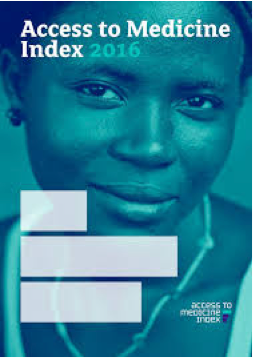STAKEHOLDER INTERVIEWSPerspectives from 15 global health leaders on GHIT's catalytic role and
Japan's transformational contributions to global health R&D
ACCESS
01
Dr. Jayasree K. Iyer
Executive Director
Access to Medicine Foundation
“There are about 2 billion people who do not have access to essential medicines, vaccines, diagnostics, and overall treatment.”
What is “access to medicine”, and why does it matter today?
While 5 billion people in the world have access to medicine, there are about 2 billion people who do not have access to essential medicines, vaccines, diagnostics, and overall treatment. One of the main issues of access is the need for medicine both to be made available for a lot of different conditions and to be accessible by a lot of different communities. Medicines need to be affordable and of good quality. There is a particular accessibility need for populations in rural areas, in jungles, or on islands. For all these reasons, access to medicine is a critical global health component that needs to be addressed.
What is the Access to Medicine Index? What does the Access to Medicine Foundation do?
The Access to Medicine Foundation has been in existence since 2003. It was founded by Wim Leereveld. His idea was that the pharmaceutical industries, being quite competitive in nature, could be encouraged to compete with each other against global health social goals, which mainly involve access to medicines. Our primary publication has been the Access to Medicine Index, which is a ranking and evaluation of twenty of the world's largest research-based global pharmaceutical companies and their efforts in access to medicines. We publish this ranking every two years.
You describe access as a global issue; in this view what kind of distinct role can each sector—including private company, government, or NGO— play?
With access to medicines, there's a clear role for multiple stakeholders to play. The private sector, especially the pharmaceutical industry, are the inventors and the producers of vaccines and medicines, so they need to make sure that medicines are made available and are affordable and of good quality as well as accessible to people all over the world.
Governments have a key responsibility to ensure that healthcare is prioritized and is available for their people. And governments that are part of global aid and trade, especially, need to ensure that regional access to medicine is also supported.
NGOs play an important role in implementing a lot of programs and gaining acceptance into communities for essential medicines. There is a host of different implementation roles that NGOs—and multiple sectors —play. There's also a very important role for people themselves— to seek healthy behavior, seek health services, and actually get access to medicines.
You touched upon the important role of the pharmaceutical industry in creating life-saving medicines. Over the past few years, what have you observed about the efforts of Japan's pharmaceutical companies to help improve access?
We've seen a gradual growth in the pharmaceutical industry in Japan with respect to their contribution to access to medicine. Primarily, I think the words of the Prime Minister Shinzo Abe helped to kick off recognition of the issue. Prime Minister Abe mentioned that healthcare is not just a country's domestic requirement, it's a cross-border, global challenge. And that's really how Japan's pharmaceutical industry has seen access to medicine. So far there has been an engagement with poverty-related diseases, as seen with researcher development. There have also been a lot of activities in on-the-ground capacity building. The four Japanese companies that we have been evaluating are all involved in capacity-building activities all around the world. And a growing trend we've seen overall is that there's more of a business focus and an economic focus in low-middle income countries.
“We've seen a gradual growth in the pharmaceutical industry in Japan with respect to their contribution to access to medicine.”
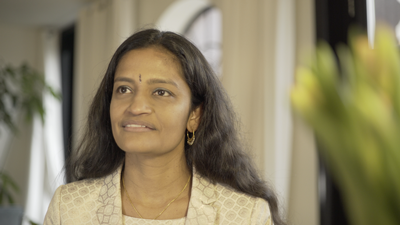
What have you have observed in terms of the country of Japan's contribution to access? Have you seen progress?
Yes, one of the key things that we've seen with the pharmaceutical industry in Japan as a whole is more engagement between public and private players on access to medicine. You see involvement from the government, with various Japanese officials speaking up about importance of access to medicine, specifically in the areas of antimicrobial resistance, healthy aging, and non-communicable diseases. There's also been a lot more discussion on universal health coverage, which has helped lead the pharmaceutical industry to actively reconsider their strategies in access to medicine and play a stronger and stronger role as the years have gone by.
What is unique about Japan's contributions to improving access?
Japan is well-positioned to contribute to access to medicine. It has a strong innovation culture. There's also a very strong recognition that the pharmaceutical industry is part of that innovation culture and part of some of the solutions in access to medicine. Additionally, there is more trust in the pharmaceutical industry in Japan than you see elsewhere in the world. There also are very strong public-private relationships, which means that partnerships—longstanding partnerships—are plentiful. Finally, there are many different platforms such as JICA, GHIT, and with the international players that are there, which allow the pharmaceutical industry and various university members to play a role in access to medicine.
What Japanese pharmaceutical industry efforts stand out to you as emblematic of Japan's capacity to help improve access?
I can give a few examples from the four companies that we've evaluated.
Astellas, for example, is involved in various different neglected tropical disease projects. They're playing a key role in the creation of pediatric formulations for Praziquantel, which is a treatment for schistosomiasis, caused by a tropical parasite. And they have been involved in other neglected and non-neglected tropical disease drug development projects.
Additionally, Eisai has been involved in a partnership to provide Diethylcarbamazine (DEC) for lymphatic filariasis, and they have been donating those products now in a very large scale. The company is also involved in several different projects all around the world for neglected tropical diseases.
Daiichi Sankyo is involved in mobile health clinics, providing basic healthcare and mother and child care. It is also involved in looking at developmental disorders in a province in China.
Finally, Takeda has also been expanding their access to medicine strategy. They're involved in an oncology initiative in Nairobi and in R&D for neglected tropical diseases, specifically in vaccine development with measles and polio vaccines. Importantly, they're now looking at how to improve affordability of key products in low- and middle-income countries.
“Very importantly, GHIT ensures that when products are developed, they are very quickly made accessible for people living in low-middle income countries, as access plans, like registration, pricing, and IP arrangements, are pre-discussed with their partners.”
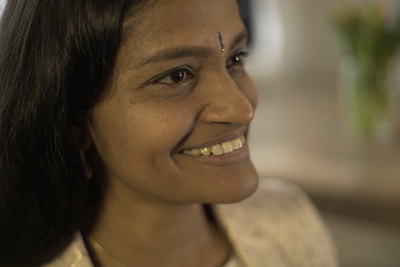
What do you see as GHIT's role in improving access?
One of the main roles that we see GHIT playing already is in engaging public and private players in poverty-related disease R&D including antimicrobial resistance . GHIT plays a role not only in getting the players on board and securing adequate funding but also in leveraging the government, private, and public players into accelerating the development of medicines and vaccines and other products. In our work, we reward companies that participate in GHIT as we see R&D public private partnerships as a powerful tool to advance the development of needed health technologies.
We also see GHIT involved in antibacterial resistance, and very importantly ensures that when products are developed, they are very quickly made accessible for people living in low-middle income countries, as access plans, like registration, pricing, and IP arrangements, are pre-discussed with their partners. Our Foundation is currently developing a new industry benchmark in this area – the Antimicrobial Resistance Benchmark will map how pharmaceutical companies are safeguarding the use of antimicrobial medicine for public health.
How do you hope Japan and GHIT will leverage its capacity and leadership in life science innovation to continue to improve access over the next 5-10 years?
Several competing contemporary global challenges exist now and will persist in the years to come. So it's important that Japan, GHIT, and the pharmaceutical industry in Japan play a stronger role in access to medicine. It's important to continue the momentum that's been made in terms of research and development (R&D) for poverty-related diseases and also try to get more involved in improving non-communicable disease care and access to essential medicines.
We also need to improve universal health coverage in low- and middle-income countries. With the innovation culture in Japan, and the momentum that we've had with the Japanese companies playing a role in access to medicine, we've seen the power and potential of Japan to improve targets. I'm hoping to see a stronger role and rapid growth that builds on Japan's momentum to date.
“I'm hoping to see a stronger role and rapid growth that builds on Japan's momentum to date.”

The Access to Medicine Index has evaluated four of Japanese pharmaceutical companies. What role do you see for other pharmaceutical companies in Japan; what do you expect from them?
The Access to Medicine Index analyses twenty companies – our findings form a model for multiple companies to get involved in improving access. There are several Japanese companies that also have a strong role in improving access to non-communicable disease medicines and getting involved in overall healthcare improvements in low-middle income countries. That is the case for pharmaceutical companies, as well as general healthcare and medical device companies. There are several companies in Japan that are well-positioned to improve access to antimicrobial medicines and improve usage of antibiotics in lowand middle-income countries.
We see that the Access to Medicine Foundation's ongoing evaluation of four Japanese companies plays a very strong role in motivating other companies to understand what it takes to improve access to medicine. How can they consider their strategies and play a strong role in that global challenge of access? We've been speaking with companies like Shionogi and Chugai, which I know are GHIT partners, to understand a bit more about what steps they are taking to improve access.
The Access to Vaccines Index is another product of your foundation. Please tell us more about that.
The Access to Vaccines Index, which is new in 2017, shows action from vaccine companies on specific issues related to improving access to vaccines. It will be the first tool of its kind to present the landscape of vaccine company behaviour when it comes to making vaccines more accessible for the populations that need them. For example, we look at vaccine R&D for a wider range of diseases than we do in the Access to Medicine Index, as well as supply-chain and pricing questions that are specific to how the vaccine market operates.
On a more personal note, what originally motivated you to engage in global health and access to medicine?
I have always been a global health specialist. I am from Singapore, which is a relatively affluent country but is surrounded by countries of different socio-economic statuses. As such, I understand that access to medicine is an issue for everybody, a cross-border issue that goes beyond domestic interests.
I got involved in access to medicine purely because I see the importance of the pharmaceutical industry's role. Companies are innovators, producers of lifesaving medicines, vaccines, and diagnostics, and they play an important role very early in the pharmaceutical value chain. This makes a very large impact downstream on the supply and accessibility of medicines. That's one of the main motivations for me to be part of this challenge.
The affiliations and positions listed in this interview are at the time of publication of the interview in 2017.
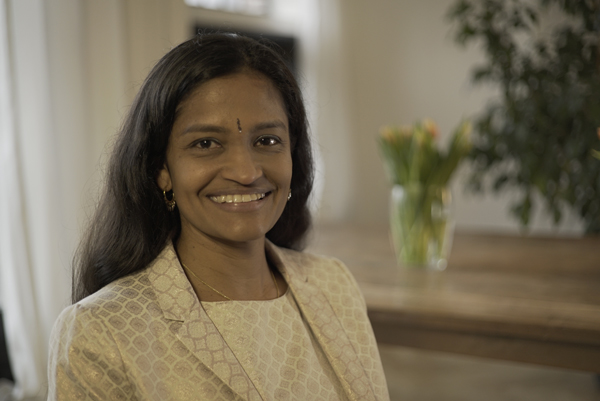
- Biography
- Jayasree Iyer, PhD, is Executive Director of the Access to Medicine Foundation, where she directs the Foundation's strategy, stakeholder dialogues, and research programs. As a spokesperson, she is actively involved in stimulating change within the pharmaceutical industry.
She joined the Foundation in 2013 as Head of Research to build up in-house research expertise and to lead the development and application of the methodology for measuring company behavior. She has worked at the interface of the global health community and the pharmaceutical industry for 12 years. Previously, Dr. Iyer was responsible for creating, negotiating and managing public-private partnerships in R&D for infectious diseases and oncology. She has worked at NGOs, academic institutions, and think tanks and co-founded the European Solutions Enterprise for Neglected Diseases.
STAKEHOLDER INTERVIEWSARCHIVES
FUNDING
-
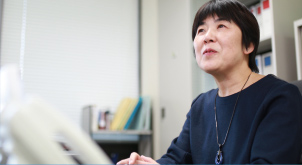
01
Dr. Naoko YamamotoSenior Assistant Minister for Global Health,
Ministry of Health, Labour and Welfare
#
-
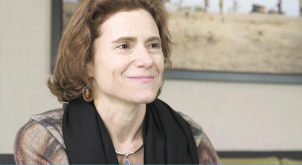
02
Dr. Hannah KettlerSenior Program Officer, Life Science Partnerships
Global Health Program, Office of the President
Bill & Melinda Gates Foundation
#
-

03
Prof. Stephen CaddickDirector, Innovations Division,
Wellcome Trust
#
DISCOVERY
-
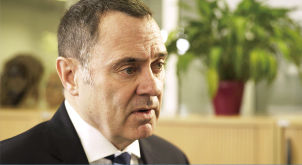
01
Dr. David ReddyCEO
Medicines for Malaria Venture (MMV)
#
-
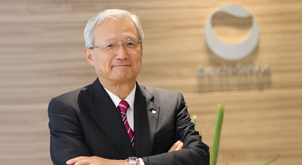
02
Mr. George NakayamaRepresentative Director,
Chairman and CEO
Daiichi Sankyo Company, Limited
#
-
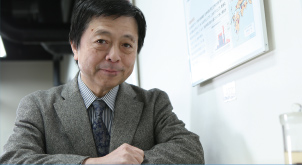
03
Prof. Kiyoshi KitaProfessor Emeritus, The University of Tokyo
Professor and Dean, Nagasaki University School of Tropical Medicine and Global Health
#
DEVELOPMENT
-

01
Mr. Christophe WeberRepresentative Director, President and CEO
Takeda Pharmaceutical Company Limited
#
-
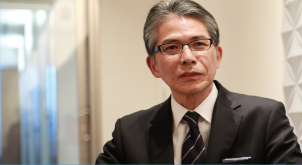
02
Mr. Yoshihiko HatanakaRepresentative Director,
President and CEO
Astellas Pharma Inc.
#
-
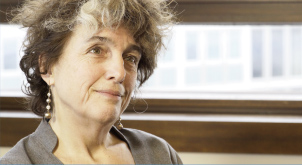
03
Dr. Nathalie Strub WourgaftMedical Director
Drugs for Neglected Diseases initiative (DNDi)
#
ACCESS
-
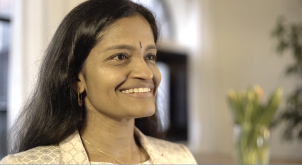
01
Dr. Jayasree K. IyerExecutive Director
Access to Medicine Foundation
#
-
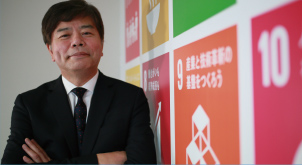
02
Mr. Tetsuo KondoDirector
United Nations Development Programme (UNDP)
Representation Office in Tokyo
#
-
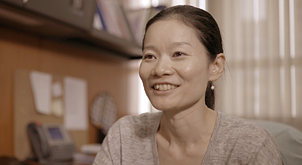
03
Dr. Aya YajimaTechnical Officer
Malaria, other Vectorborne and Parasitic Diseases Unit
Division of Communicable Diseases
World Health Organization Western Pacific Regional Office
#
POLICY
-

01
Dr. Mark DybulFormer Executive Director
The Global Fund to Fight AIDS,
Tuberculosis and Malaria
#
-
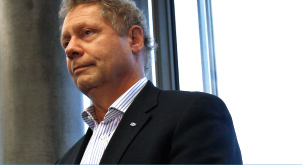
02
Dr. Seth BerkleyCEO
Gavi, the Vaccine Alliance
#
-
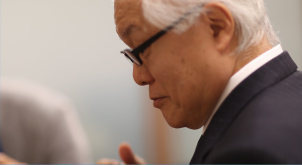
03
Hon. Prof. Keizo TakemiMember of the House of Councillors of Japan
Chairman, Special Committee on Global Health Strategy
of the Liberal Democratic Party's Policy
#


